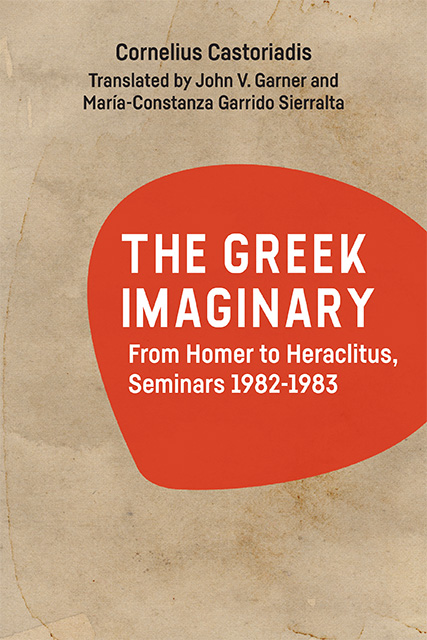VI - Seminar from January 5, 1983
Published online by Cambridge University Press: 20 October 2023
Summary
Today we’re going to talk about Homeric religion, and more precisely about what has been called the religious revolution in Homer. It’s a subject that touches on the problem of Greek religion as a whole but more generally on the question of the possibility of our proper relationship—one of analysis, of understanding—to this particular religion, which is at once very distant from us and quite different (despite what has been said about it, particularly from the structuralist side) from a whole set of other religions, myths, or “archaic” beliefs.
It should be emphasized that for modern Western philosophy, Greek religion remains an enigma. About twelve or so years ago, I had just happened to read a book review on the subject in the Times Literary Supplement, in which they admitted to not understanding how a people who created philosophy, geometry, and tragedy could remain attached for the whole of its existence to beliefs so absurd, infantile, aberrant, and so on. Of course, the author of the article had forgotten that his own culture still remains attached to beliefs as absurd and infantile as an immaculate conception by a virgin saint or a being who’s at once man and god, who ascends to heaven and redescends, i.e. in short, all these far-fetched stories, which are neither more nor less absurd than Greek religion or than whatever other belief. Such remarks simply manifest a total misrecognition of what a religion is. But there’s something more to observe regarding the way to approach Homeric religion, or rather three things.
First, what almost always intervenes like a kind of veil over moderns’ eyes, whether they desire it or not, is their preconception regarding religion. For, by religion they mean our religion; just as by civilization, they mean our civilization; by literature they mean our literature; by morality our morality; by good manners or politeness our manners or our politeness. What I’m saying here may seem very elementary and very stupid, but it’s the case. Of course, this preconception is profoundly marked by monotheistic beliefs and by the entire onto-theology that accompanies them.
- Type
- Chapter
- Information
- The Greek ImaginaryFrom Homer to Heraclitus, Seminars 1982-1983, pp. 97 - 114Publisher: Edinburgh University PressPrint publication year: 2023



